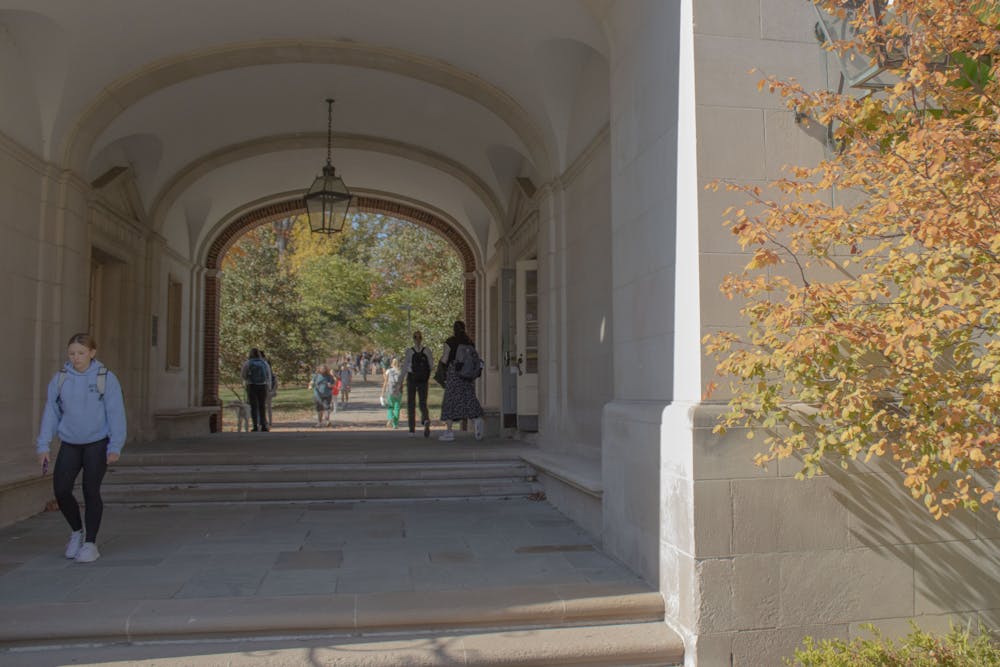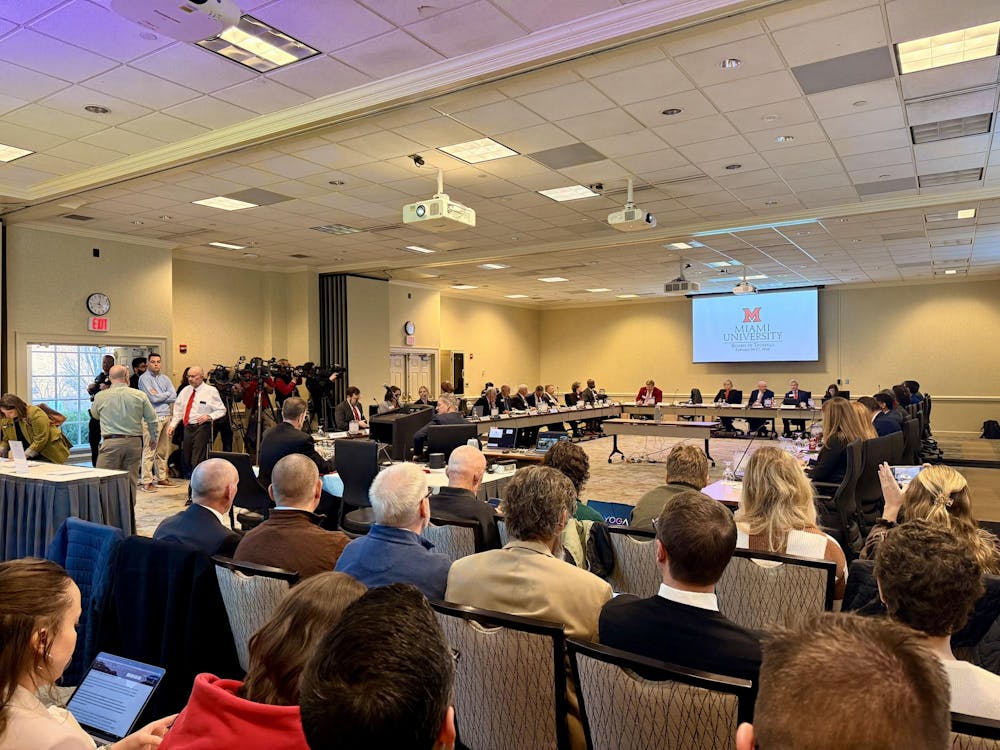Miami University’s October issue of The Wrap Up announced eight new faculty and staff grant projects. Selected recipients were given externally funded grants to fund their research and projects. The topics of interest ranged from mental health in the social work field, to LGBTQ+ wellness and community outreach for educational support.
Funding can be granted to professors and administrators alike from various outlets. Some of these have even chosen to put their awards back into the community through research.
Opportunities for social work students
Miami’s Director of the Office of Student Financial Assistance, Beth Johnson, received more than $750,000 in grant money for “The Great Minds Fellowship.” Since the beginning of the fall 2023 semester, the program has worked directly with the social work department to support undergraduate and graduate students within the major. Johnson serves as the project lead for the university because her office will be distributing funds to select students.
“Students can get up to $10,000 within the last two years of their degree program,” Johnson said. “And they can use it for pretty much anything related to their education or even the cost of their licensure.”
Johnson said social work is currently the only major eligible to receive the funding. Along with being in a specific major, eligible students must also be involved in an internship with one of Ohio’s Community Behavioral Health Centers. The funding for “The Great Minds Fellowship” originates from the Ohio Department of Higher Education, along with pass-through funds from the American Rescue Plan Act and the Department of Health and Human Services.
Johnson said Miami has to use all of the funds up by March 2025, but additional funding may be available in the future.
“The goal really is to get professionals out in the field for mental health counseling,” Johnson said.
Advancing mental health for minorities
Zachary Soulliard, an assistant professor of psychology at Miami, has received more than $20,000 from Yale University, along with pass-through funds from the U.S. Department of Health and Human Services. He will use the funds to continue his research on mental healthcare for sexual and gender minorities in low-resource communities.
While receiving his postdoctoral associate from the Yale School of Public Health, Soulliard served as a co-investigator under principal investigator John Pachankis. Since 2015, Pachankis has been working to develop mental health treatment and therapy tailored to LGBTQ+ individuals.
“It’s gone through tons of different clinical trial testing and has gotten a lot of support when it comes to reducing symptoms of depression, anxiety, substance abuse [and] other things too among different subgroups of the LGBTQ community,” Souillard said.
Enjoy what you're reading?
Signup for our newsletter
After eight years of research, it is time to focus on execution.
The funding from the grant will be distributed across 90 different LGBTQ+ centers throughout the U.S. that will provide treatment to youth, adolescents and adults. Throughout the process, Souillard and his team will be collecting data from before and after the treatment, along with follow-ups a few years later.
Soulliard, who is a licensed clinical psychologist by training, also oversees his own study as the principal investigator of his lab, “Body Image and Stigma among Queer Populations (BISQue).”
“This work is very meaningful to me, too,” Soulliard said. “As a clinician, I want to make sure that LGBTQ people can get access to treatment that has been rigorously tested, and treatment isn't going to work for everyone. But in terms of testing it, [there’s] greater hope that it will help certain LGBTQ people.”
Providing writing resources to students without access
Beth Rimer, co-director of the Ohio Writing Project at Miami, has received $12,600 from the National Writing Project, along with pass-through funds from the U.S. Department of Education and the American Institutes for Research. The funding is designated for a project called “2023 National Writing Project Coach. Teach. Write Grant.”
“We work with K-12 teachers to support their effective writing instruction for students and teachers,” Rimer said. “And so what this grant allows us to do is work with teachers that wouldn’t have had the funds otherwise to do so.”
Some of the programs that the National Writing Project offers include workshops, youth writing camps and a master’s program. In addition, funding from the grant allows schools that may not have the resources otherwise to have access to professional development.
Currently, the grant is focused on working with Clinton-Massie Middle School in Clarksville, Ohio, and supporting the middle school students’ and teachers’ development in writing skills. This grant allows for Rimer and her team to reach smaller, rural schools such as Clinton-Massie.
“It works in a cycle,” Rimer said. “So we provide professional development and coaching, and then teachers will implement writing practices in their classroom, and then we coach again. We talk about what they did, what worked, and then we make adjustments.”
As a result of working with these schools, Rimer and her team are better able to understand how the methods behind the teaching of writing impact students.
The $12,600 funds the project with Clinton-Massie for the next year. Following the completion of the year, a report will be submitted that details the results of Rimer’s work. Then, additional funding is provided to work with more middle schools for two additional years.
“Providing spaces for young writers to be able to have a voice in their world is something that is good for both mental health, that is good for developing their writing across all kinds of genres, and for them in terms of other benefits about being confident and building their efficacy as writers,” Rimer said. “It focuses on young student writers … and helping them find their voice in the world.”




